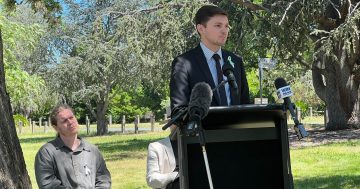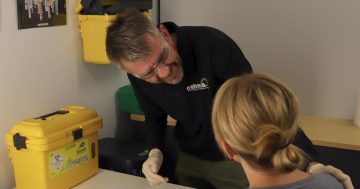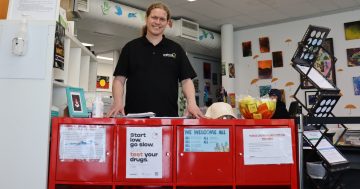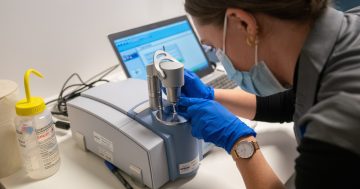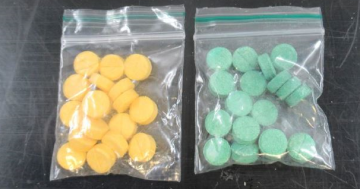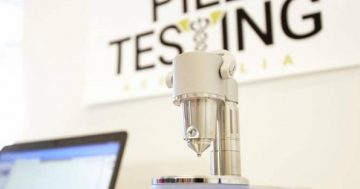
CAHMA executive director Chris Gough welcomed anyone to drop by whenever they needed. Photo: Mitch Lamb, CAHMA.
“It would be wonderful if people who were thinking about using drugs came in to have a chat and collect information about the dangers. I’m hoping more people will start to come and access more information because it’s crucially important they do.”
That’s Chris Gough, executive director of the Canberra Alliance for Harm Minimisation and Advocacy (CAHMA).
The Belconnen-based centre’s a ‘low-threshold’ entry point into the health system for people who used drugs, a place to find support, help and community.
Open for more than 30 years, CAHMA provides harm reduction information for people to take drugs safely.
“You’re not expected to change your behaviour in any way … we go for long-term engagement with people, so we’re there when they’re ready to seek more help,” Mr Gough said.
“It’s controversial, but we know people take drugs, so we’re about harm reduction. You can step from harm reduction to health treatment when you’re ready to quit.”
Mr Gough compared the accessibility of information about alcohol to the stigma surrounding information about drug taking.
“It’s important to know how many drinks you can have and still be safe, still be able to drive, that’s a harm reduction technique … [but] it’s easy to message because the drug’s legal,” he said.
“When you sweep drugs under the carpet and criminalise it, you tend to sweep away everything related to it as well.
“It’s never going to be safe, but we can make people safer … it’s all about being informed about where the danger lies.”
Harm reduction information was as varied as each drug a person could take, but they centred around the same themes.
Mr Gough said people needed to educate themselves about what a drug could do to their body, how long it would take for a drug to take effect, what you would experience when on the drug, when you could expect to come down and what to expect as part of the ‘hangover’.
This is important as purity can vary significantly been each batch of a drug, and sometimes you could end up with something you weren’t expecting, as shown by Canberra’s fixed pill testing site. CAHMA is one of the organisations involved with the trial site, providing peer workers to help with its operation.
There is also information about safe injecting so people can better protect themselves against potential abscesses and blood-borne diseases.
“This is about empowering people to be in control of their health and wellbeing, and knowing their health and wellbeing is important by providing them with pathways to be involved with society,” Mr Gough said.
“The [decriminalisation] legislation is fantastic, but it’s only one step forward … we are cast as that ‘other’, but we’re also worthwhile members of society.”
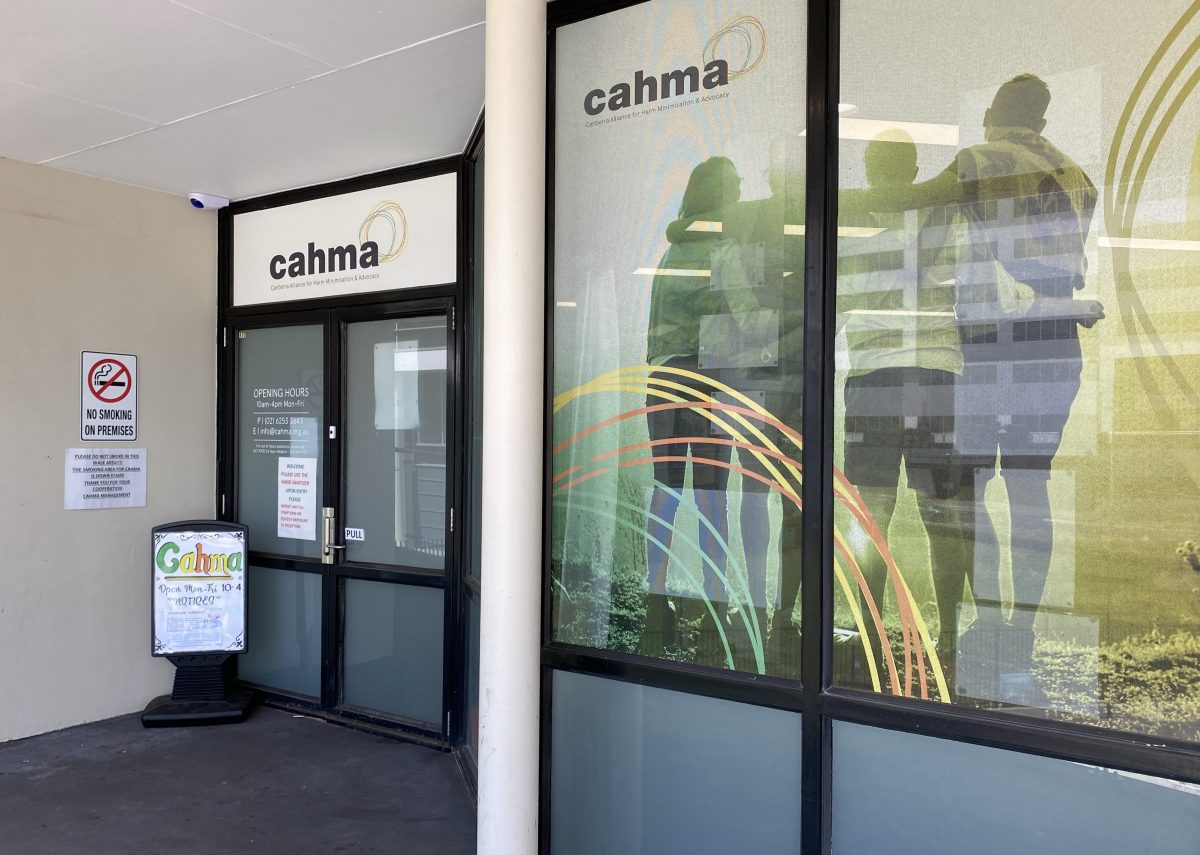
People could come to CAHMA for a meal, a chat or help to quit drugs without judgement. Photo: Claire Fenwicke.
CAHMA was mainly staffed by people with lived experience of drug use and student volunteers.
Mr Gough said there was a concerning stigma in society that when people wanted to address their drug use, they were discriminated against and shunned because of their ‘choice’.
“Yes, it’s a choice, just as you can say to somebody, ‘you knew you were going to get a brain injury because you were boxing’. Choice only tells one side of the story,” he said.
“Their environment is often seeped in trauma and self-stigma where you believe you’re not worthy of anything, but that doesn’t mean you’re any less deserving of care.
“A lot of people we talk to have a lot of trauma in their lives and they use drugs as a treatment as they don’t know what else to do.
“People come through our door because they want help. They need help.”
Mr Gough wanted to see more low-threshold entry points like CAHMA in Canberra to support drug users before they accessed the health system.
He said many drug users were actually fearful of accessing traditional healthcare.
“Our community is so highly criminalised they often see [places such as hospitals] as scary with a lot of trauma attached,” Mr Gough said.
“People aren’t cases to be managed; they’re people to be supported.”
CAHMA also provided a space for people to have a hot meal and cup of tea, sit down and watch television, access art therapy and build a community.
BBQs were held four times a week across Canberra, and CAHMA could also refer people to trusted external partners to help with any problems raised.
“Social isolation is a massive issue in the community. At a base level, people are looking for connection and looking for help,” Mr Gough said.
Advocacy was also an important part of what CAHMA does, meeting with other stakeholders each month to discuss issues and barriers people were experiencing.
“This allows the sector to be a lot more flexible and responsive to community trends and allows person-centred care to be front and centre,” Mr Gough said.
“We need to be at the table of the process to provide real-life policy advice and solutions.”
CAHMA drop-in centre can be found at Level One, Belconnen Churches Centre, on the corner of Cohen St and Benjamin Way, Belconnen, opposite Westfield Belconnen. It’s open Monday to Friday from 10 am to 4 pm.
For information about the ACT’s pill testing centre, visit CanTEST Health and Drug Checking Service.














